1970s Perfume Advertising
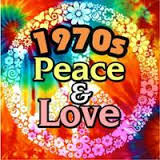
Advertising in the 1970s
The 1970s were viewed by some in the industry as a cooling off period. While sex was the largest positioning strategy in 1970, by 1979 only 28% of fragrances used a sex-only strategy. Sex was still present in many ads, but it was combined with other strategies. The tone of advertising for women's fragrances headed towards women using fragrance for themselves and being in control and self-sufficient rather than using the scent to turn on men. Throughout the 1970s, feminist groups worked to draw the public's attention to sexual stereotypes in advertising and to change them through protests, product boycotts, letter-writing campaigns and lawsuits. In the mid-1970s the industry itself started paying more attention to images of women in advertising. Big companies that had formerly only targeted TV spots to women during the daytime, starting buying time on nightly new shows to reach working women. Because of the growing population of working women, there were a lot of ads geared toward women. As the 1970s unfolded, more and more women were working, heading households and/or controlling the discretionary spending. Both print ads and TV spots from the 1970s to the early 1980s began to reflect the impact of feminism. Ads portrayed women in non-traditional roles and started featuring husbands fixing dinner for their working wives or taking care of children.
In 1975, a new ad agency called Advertising to Women was founded. Its intent was to reach the contemporary, career-oriented woman who was not inhibited by her sexuality. Market research conducted by the agency showed that women were responsible for most household purchases, 60% of all vacation destination choices and nearly 30% of new car selections. It's interesting to note that the number of women in advertising nearly tripled from 1973 to 1986.
The 1970s were the decade that marketing really appeared for the perfume industry. Jean-Claude Ellena noted that "In the 1970s, marketing appeared. Suddenly, the decision about a perfume was given to the marketing people. So perfumery had to adapt to this new approach and a perfumer now had to please a lot of people." The 1970s brought about the sultry revolution, enticing women into perfume sales for the first time using sexual prowess as its marketing campaign.
Fragrance advertising was revolutionized in 1973 with the launch of Charlie, named after Revlon company founder Charles Revson. The ad campaign shook up the fragrance market. This campaign, featuring model Shelley Hack as the "Charlie girl," showed an independent, perhaps even employed, female who selected her own fragrance. In its first year on the market, Charlie brought in more than $10 million in sales, according to Advertising Age. Between the years 1973 and 1977, it brought in over $1 billion in sales. Charlie's advertising convinced women not only to buy the scent for themselves but also to wear fragrance daily rather than just for special events.
Charlie wasn't the only success story of the 1970s. Jovan launched musk oil in the 1970s and used a unique marketing approach - the fragrance was unisex, appropriate for men and women. Jovan was a small fragrance marketer who spiced up consumer advertising and the fragrance industry in the mid-1970s. Executives at the company used blatant sex appeals to boldly introduce a line of musk-oil-based colognes and perfumes. The headlines of their ads proclaimed:
- "Sex Appeal. Now you don't have to be born with it."
- "Drop for drop, Jovan Musk Oil has brought more men and women together than any other fragrance in history."
- "Jovan Musk Oil Perfume. The only Musk oil dedicated to the proposition."
- "Someone you know wants it."
- "In a world filled with blatant propositions, brash overtures, bold invitations, and brazen proposals…Get your share."
The approach earned the company and its three executives accolades, and sales soared from $1.5 million in 1971 to $77 million by 1978. With no previous experience in the fragrance industry, Jovan's founders implemented a marketing strategy that was brazenly sexual. Its ads made outright statements about what would happen with sexual outcomes if you used their colognes. This campaign proved quite successful and the Fragrance Foundation in 1975 voted Jovan's Musk Oil promotion the "most exciting and creative national advertisement campaign." Jovan's CEO, Bernie Mitchell, also earned an industry award. He was voted "the year's most outstanding person." One of the other innovative techniques used by Jovan was to print sales copy directly on the box. This approach was referred to as the "talking package" because copy on the box described the contents. In Jovan's advertising, packaging and promotions, sex was always at the core.
The success of Charlie and Jovan Musk opened the floodgates to perfume marketing. One of the more notable campaigns from the decade was from Prince Matchabelli, which offered up the notable "I can't seem to forget you, your Wind Song stays on my mind".
Enjoli and Aviance fragrances were both depicted by women who could work, do chores and keep their man happy at night. Enjoli's commercial became the iconic image of a superwoman, one who could "bring home the bacon, fry it up in a pan and never, ever let you forget you're a man."
Aviance’s message was that the fragrance should be used to turn on your man. Their marketing director put together a successful campaign designed to play to the insecurities and desires of stay-at-home wives in the mid-1970s. Research had shown that stay-at-home wives visualized their husbands at work with voluptuous, liberated women and used fragrance to transform themselves from wife and mother to a sexual partner. Aviance was advertised as the fragrance that could assist them in making that happen. Even though the woman in the ad is objectified (her only worth to her man is as a sexual plaything), this ad was produced by the female run agency, Advertising to Women. Even the jingle was created by the agency's president, Lois Geraci Ernst. Aviance sold over $7 million its first year and the ad was selected by Advertising Age as one of the best commercials in 1975 despite having a scent described by its own marketing director as "not that appealing". I remember these commercials and was surprised to read that they ran for only four months during 1975. The print campaign was a full page color shot of a husband leaning against the doorway as seen through the legs of his wife.
Jontue tried to tread the line between making the wearer smell sexy yet innocent, a gimmick Love’s Baby Soft carried to a cringe-worthy degree. In a 1975 television commercial, Love's Baby Soft went extra creepy. "There is one person that no one can resist and that's a baby. So Love's made Baby Soft with the innocent scent of a cuddly, clean baby that grew up very sexy. So innocent it may well be the sexiest fragrance around. Because innocence is sexier than you think. For your baby at Christmas." Ick!
In the 1970s when it came to advertising men’s fragrances, (or after-shave back then) the more macho the message, the better. The 1970s were the decade of brown, denim, corduroy and body hair and men's scents were musky and manly. Square-jawed actors, models or sports stars rubbed shoulders with gorgeous women to promote the scents. Fabergé first started selling Brut aftershave and cologne in 1964, but the product didn’t become a household name until famous athletes like Joe Namath and Wilt Chamberlain started appearing in their TV commercials.
Some of the slogans from 1970s fragrances:
- Faberge Brut - "Oh you great big beautiful Brut."
- MEM English Leather - "All my men wear English Leather or they wear nothing at all."
- Faberge Tigress - "Are you wild enough to wear it?"
- Prince Matchabelli Cachet - "A fragrance as individual as you are."
- Shulton Cie - "For all the women you are."
- Revlon Ciara - "Devastatingly female."
- Faberge Babe - "A fragrance so fresh, so natural, Faberge named it just for you."
- Revlon Charlie - "The gorgeous, sexy-young fragrance."
- Leeming-Pfizer Skinny Dip - "Makes a girl feel pretty."
- Revlon Enjoli - "The 8 hour perfume for the 24 hour woman."
- Menley & James Love's Baby Soft - "Because innocence is sexier than you think."
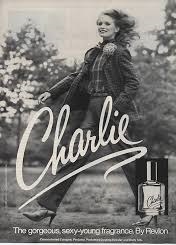
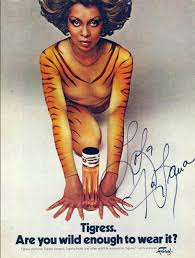
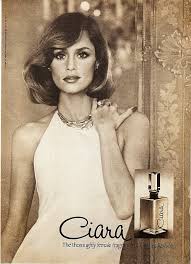

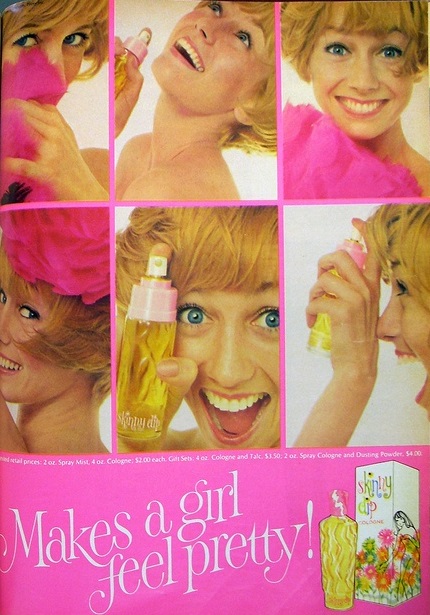
Some of the famous faces from 1970s fragrance advertisements:
- Joe Namath (Revlon Pub Cologne)
- Charles Bronson (Mandom by Mandom--Japanese Co.)
- Jaclyn Smith (MEM English Leather)
- Lola Falana (Faberge Tigress)
- Candice Bergen (Shulton Cie)
- Lauren Hutton (Revlon Ciara)
- Margeaux Hemingway (Faberge Babe)
- Shelley Hack (Revlon Charlie)
- Sandy Duncan (Leeming/Pfizer Skinny Dip)
- Pam Dawber (Avon Sweet Honesty)
